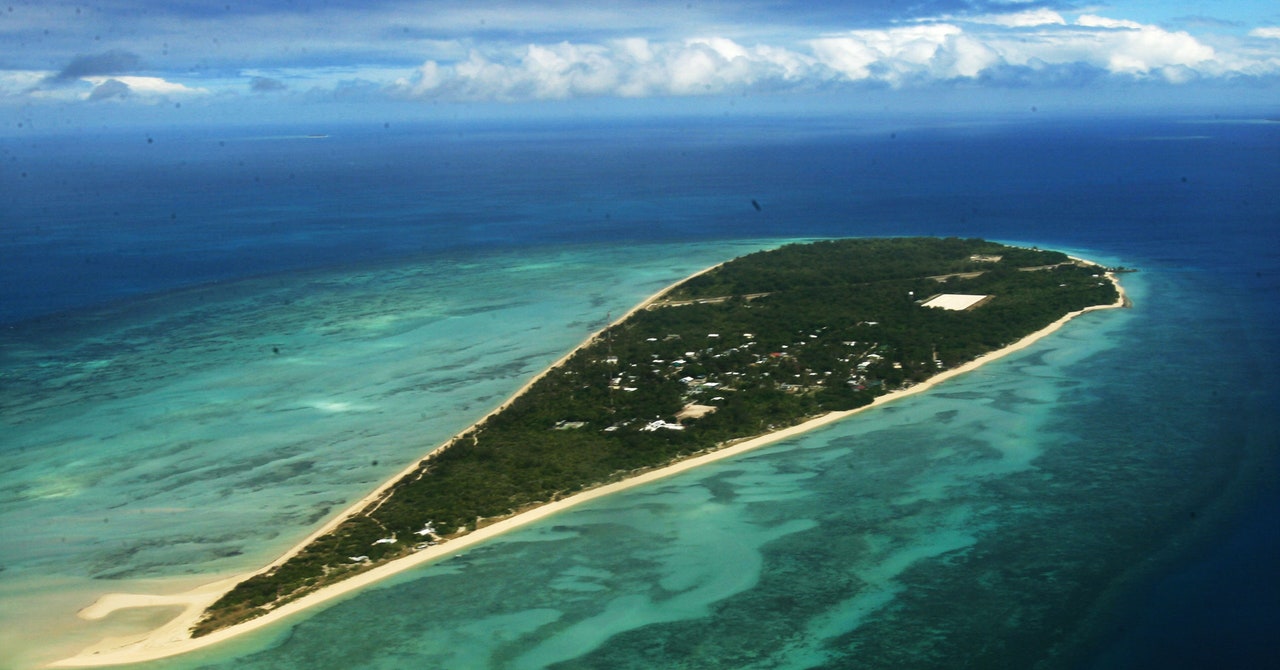
ClientEarth’s interpretation of fiduciary duty has never been applied before, says Marjanac, but she is confident that will change. “Fiduciary duty is about prudent risk management. Human rights are about the inherent dignity of the individual. The crises of the modern world are the climate crisis and the biodiversity crisis. It’s only natural that the law will step up and adapt.”
IN THE CASE of the Torres Strait islanders, Marjanac and ClientEarth turned to Article 27 of the Universal Declaration of Human Rights, which protects an individual’s right to participate in and enjoy their culture.
Article 27 was originally designed to protect minority groups against genocide and colonial mismanagement in the wake of the Second World War, but ClientEarth sought to adapt and extend its protections.
In September 2019, Marjanac presented a petition to the UN Human Rights Committee, a body of 18 legal experts that oversees compliance with the treaty and acts as a de facto court (it has no enforcement powers but states generally comply with its rulings).
ClientEarth argued that the Australian government’s failure to protect the fragile ecosystems of the Torres Strait violated the islanders’ Article 27 rights to their culture, and their Article 17 rights to be free from interference in privacy, family, and home. “We all have a right to family, home, and culture under international law,” Marjanac says. “When I was there even the children said, ‘If we had to leave the island, we couldn’t leave our loved ones—we couldn’t leave the grandparents and the great-grandparents behind.’”
The Australian government fought back. In August 2020, it asked the committee to dismiss the case, denying that climate change was impacting the human rights of the islanders, and that—because Australia is not the main or only contributor to global warming—the effects of climate change on its citizens are not its legal responsibility under human rights law. Later that year, the UN’s legal experts agreed with the islanders, but the Australian government doubled down, arguing that it was already doing enough to fight climate change, and that future impacts were too uncertain to require action.
As it waited for the final UN decision, ClientEarth continued to put pressure on governments and organizations around the world. In July 2022, as the UK sweated through record temperatures, the High Court ruled in its favor, finding that the government’s net-zero strategy breaches the Climate Change Act and needs to be strengthened. The charity launched cases in Poland from farmers, business owners, and parents suing the government for failing to reduce greenhouse gasses. There’s legal action looming in France over corporate plastic pollution by nine of the country’s largest food companies.
Clarke and her team are helping the EU strengthen anti-deforestation legislation, and advising the Chinese Supreme Court on how to green up the Belt and Road Initiative. “We really know we’re winning when we’re at the point where all we need to say is, ‘Don’t make me write another letter,’” she says.
Finally, in September 2022—three years after the initial complaint—the United Nations Human Rights Committee agreed with ClientEarth’s new interpretation of human rights in the face of climate change. Australia had violated the right to culture, and the right to be free from interference with privacy, family, and home. The Committee asked the Australian government to compensate the islanders “for the harm they have suffered, to engage in meaningful consultations to assess their needs, and take measures to secure their communities’ safe existence.”
Securing the money will take time, Marjanac says, but the ruling means other low-lying areas finally have a legal recourse in their battle to survive. The committee specifically rejected Australia’s claim that individual countries can’t be held responsible for the effects of climate change, and agreed that international environmental obligations are a human rights issue.
It was early evening in the Torres Strait when the news reached Yessie Mosby. “I shed tears of joy, and I know that my ancestors were rejoicing,” he says. “I know that it’s not the end, but I know that a lot of doors have been opened. I was so happy that I wouldn’t be a refugee. Nobody on Earth should be asking their children to put their grandmother’s remains in a bucket.”
This article was originally published in the January/February 2023 issue of WIRED UK magazine.


